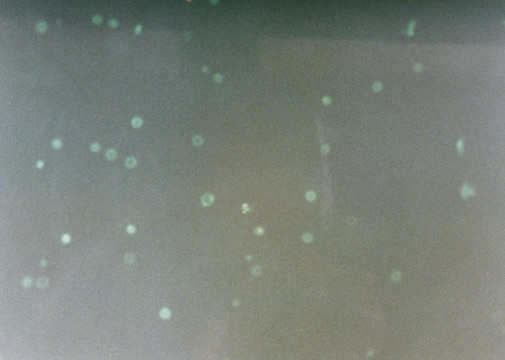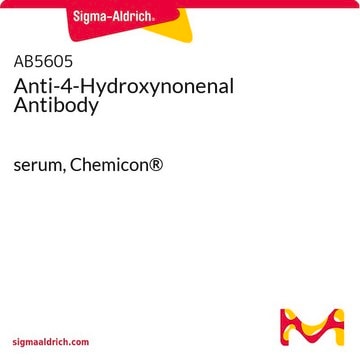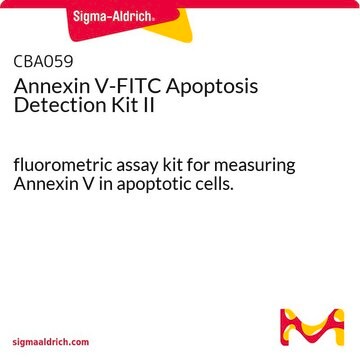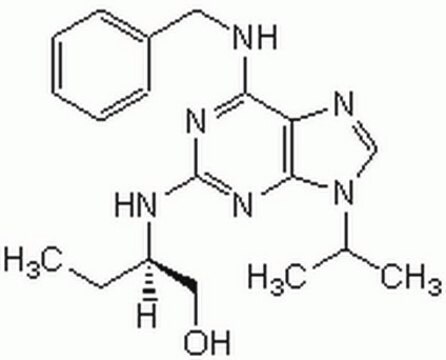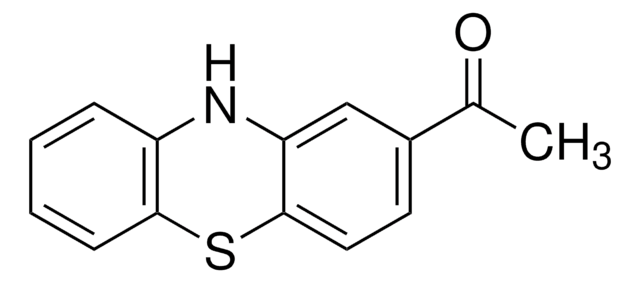S7150
OxyBlot Protein Oxidation Detection Kit
The OxyBlot Protein Oxidation Detection Kit provides the reagents to perform the immunoblot detection of carbonyl groups introduced into proteins by oxidative reactions with ozone or oxides of nitrogen or by metal catalyzed oxidation.
Synonym(s):
OxyBlot assay, Protein oxidation kit
About This Item
Recommended Products
Quality Level
manufacturer/tradename
Chemicon®
OxyBlot
technique(s)
western blot: suitable
detection method
chemiluminescent
shipped in
wet ice
General description
Application
1. Wash adherent cells twice in the dish or flask with ice-cold PBS and drain off PBS. Wash non-adherent cells in PBS and centrifuge at 800 to 1000 rpm in a table-top centrifuge for 5 minutes to pellet the cells.
2. Add ice-cold RIPA buffer to cells (1 ml per 107 cells/100 mm dish/150 cm2 flask; 0.5 ml per 5 x 106 cells/60 mm dish/75 cm2 flask).
3. Scrape adherent cells off the dish or flask with either a rubber policeman or a plastic cell scraper that has been cooled in ice-cold distilled water. Transfer the cell suspension into a centrifuge tube. Gently rock the suspension on either a rocker or an orbital shaker in the cold room for 15 minutes to lyse cells.
4. Centrifuge the lysate at 14,000 x g in a precooled centrifuge for 15 minutes. Immediately transfer the supernatant to a fresh centrifuge tube and discard the pellet.
5. Dilute the cell lysate at least 1 : 10 before determining the protein concentration because of the interference of the detergents in the lysis buffer with the Coomassie-based reagent. At this step, the sample can be divided into aliquots and stored at -20¡C for up to a month.
TIP: When working with large volumes of non-adherent cells, the cells may not be cooled quickly enough to maintain the activity of the protein being studied. In this case, pour the cell suspension into a mixture of an equal mass of 2 x PBS and ice, then collect the cells by centrifugation and perform the lysis as described above.
RIPA lysis buffer:
Catalog number 20-188
http://www.millipore.com/catalogue/item/20-188
Reducing agent is very important for preventing oxidation:
The protein lysate may be prepared using a variety of protocols. Most standard buffers such as RIPA and Triton are also suitable. It is recommended that a reducing agent be added to the lysis buffer to prevent the oxidation of proteins that may occur after cell lysis. Lysis buffer containing either 1-2% 2-mercaptoethanol or 50 mM DTT sufficiently inhibits this oxidation, but has no adverse effect on the derivatization reaction in the OxyBlot protocol. Purified protein samples are also suitable for analysis with the OxyBlot Kit.
For general information about protein extraction, please check this link.
http://www.millipore.com/immunodetection/id3/proteinextraction
Storage and Stability
Legal Information
Disclaimer
Signal Word
Warning
Hazard Statements
Precautionary Statements
Hazard Classifications
Met. Corr. 1 - Skin Sens. 1
Storage Class Code
8A - Combustible corrosive hazardous materials
Regulatory Listings
Regulatory Listings are mainly provided for chemical products. Only limited information can be provided here for non-chemical products. No entry means none of the components are listed. It is the user’s obligation to ensure the safe and legal use of the product.
PDSCL
Please refer to KIT Component information
PRTR
Please refer to KIT Component information
FSL
Please refer to KIT Component information
ISHL Indicated Name
Please refer to KIT Component information
ISHL Notified Names
Please refer to KIT Component information
Cartagena Act
Please refer to KIT Component information
JAN Code
キットコンポーネントの情報を参照してください
Certificates of Analysis (COA)
Search for Certificates of Analysis (COA) by entering the products Lot/Batch Number. Lot and Batch Numbers can be found on a product’s label following the words ‘Lot’ or ‘Batch’.
Already Own This Product?
Find documentation for the products that you have recently purchased in the Document Library.
Customers Also Viewed
Our team of scientists has experience in all areas of research including Life Science, Material Science, Chemical Synthesis, Chromatography, Analytical and many others.
Contact Technical Service
